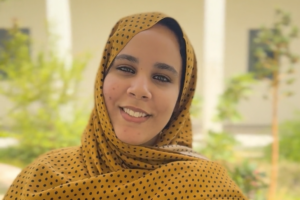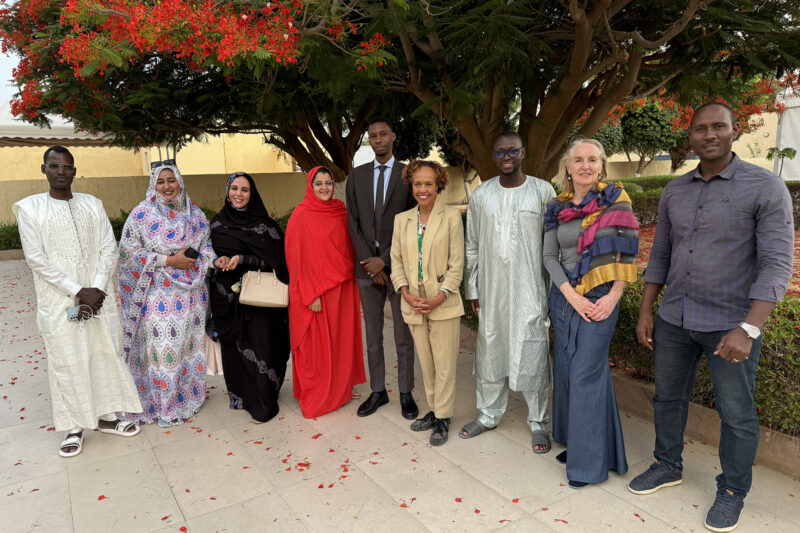Two Jackson faculty members who are part of the school’s new Peacebuilding Initiative — Professor Catherine Panter-Brick and Senior Fellow Bisa Williams — conducted research on peace in Mauritania this summer, pioneering a participatory new approach to their fieldwork.
Panter-Brick, Williams, and Mauritanian colleagues led focus group discussions with six main population groups: diplomats and scholars vested in foreign affairs; university students of Mauritanian origin and refugee students from conflict-affected countries; and parents in the local community who had no formal connection to the field of international relations.
Participants were asked to describe “everyday peace” and what factors causally influence a peace ecosystem. The research was conducted in collaboration with the Diplomatic Academy of Mauritania and the University of Nouakchott.

Williams, a former U.S. ambassador, said one of the most enlightening takeaways from the discussions with students was the “common, underlying sense of hopefulness about the future” they shared, even in the face of potential violence and conflict.
“Both groups of students attached great value to the possibilities of good governance,” she said. “They were neither cynical about nor indifferent to government institutions. I think that bodes well for the future those young people want to construct.”
In order to learn how diverse groups described everyday peace and identified causal influences, Panter-Brick and Williams used the methodology of fuzzy cognitive mapping (FCM). This approach consists of having small groups of respondents visually draw a “mental map” of peace, using an online program that serves to represent their knowledge in a form that can be used for quantitative scenario analysis. This helps to understand lived experiences and evaluate what cascade of effects would result from specific policy initiatives. It’s a participatory methodology that Panter-Brick has also successfully deployed with refugees and host populations in Jordan.
“What was striking to our team was how layered the concept of everyday peace proved to be,” Panter-Brick said. “It implicated governance, socioeconomic factors, community values, peace of mind, and safety. For example, people were quick to mention justice, power, coexistence, ignorance, and respect — the conditions by which people can or cannot flourish in society.”
The researchers believe the concept of everyday peace can ultimately help inform peacebuilding, examining peace through the lens of lived experiences, local knowledge, and social action.
“For many Mauritanians, peace is priceless, and we witnessed a sense of ownership and excitement arising from the process of drawing a visual map of the drivers of peace,” said Panter-Brick, allowing for dialogue and insights into the ways people think about “a systems approach to peace.”
This research project was borne from Jackson’s Peacebuilding Initiative and supported by a collaborative faculty grant from the MacMillan Center. The Peacebuilding initiative has, in addition to innovative research, developed several undergraduate and graduate peace-based courses at Yale. In spring 2024, it convened a two-day colloquium, “Building Peace Across Generations,” in New Haven.
